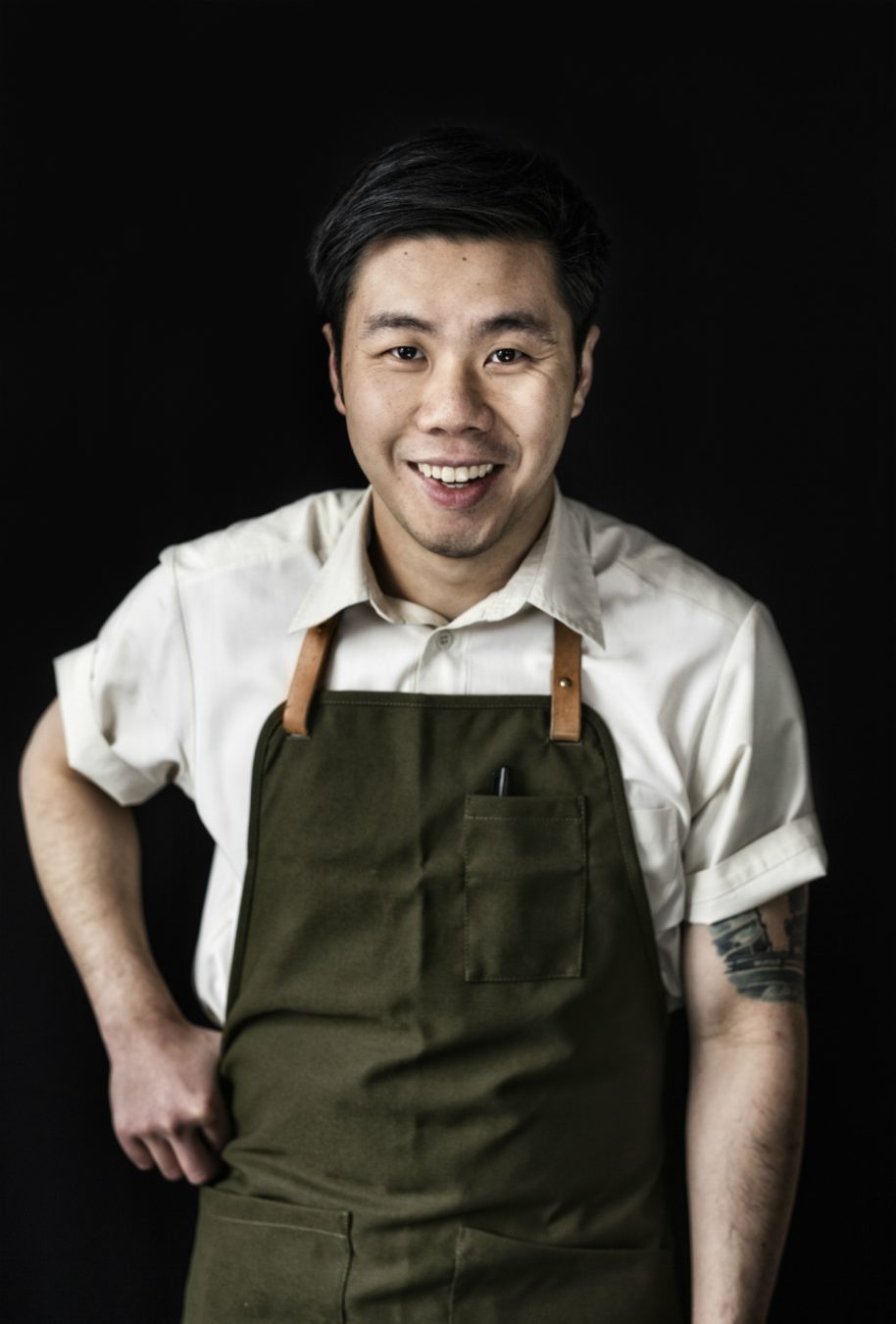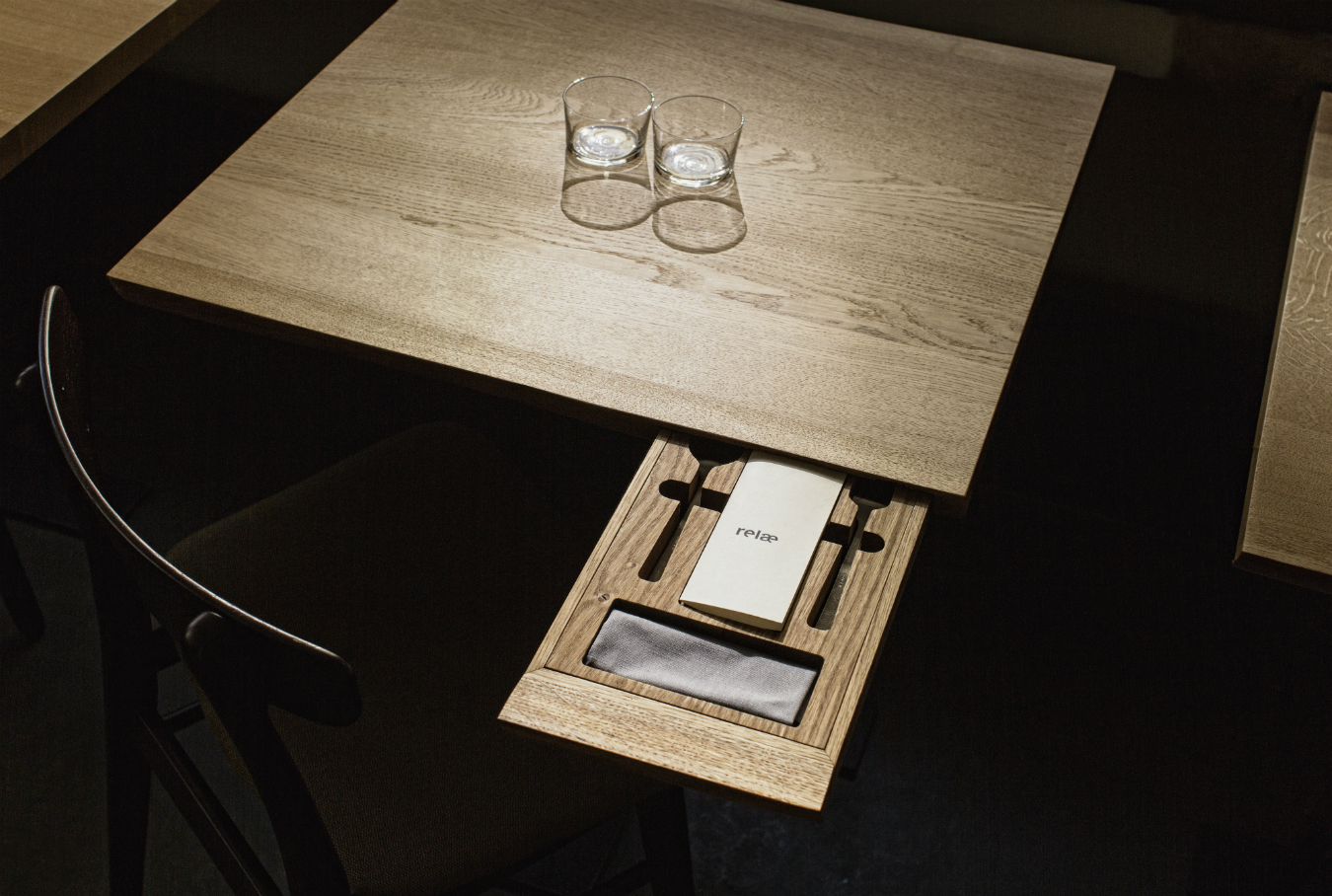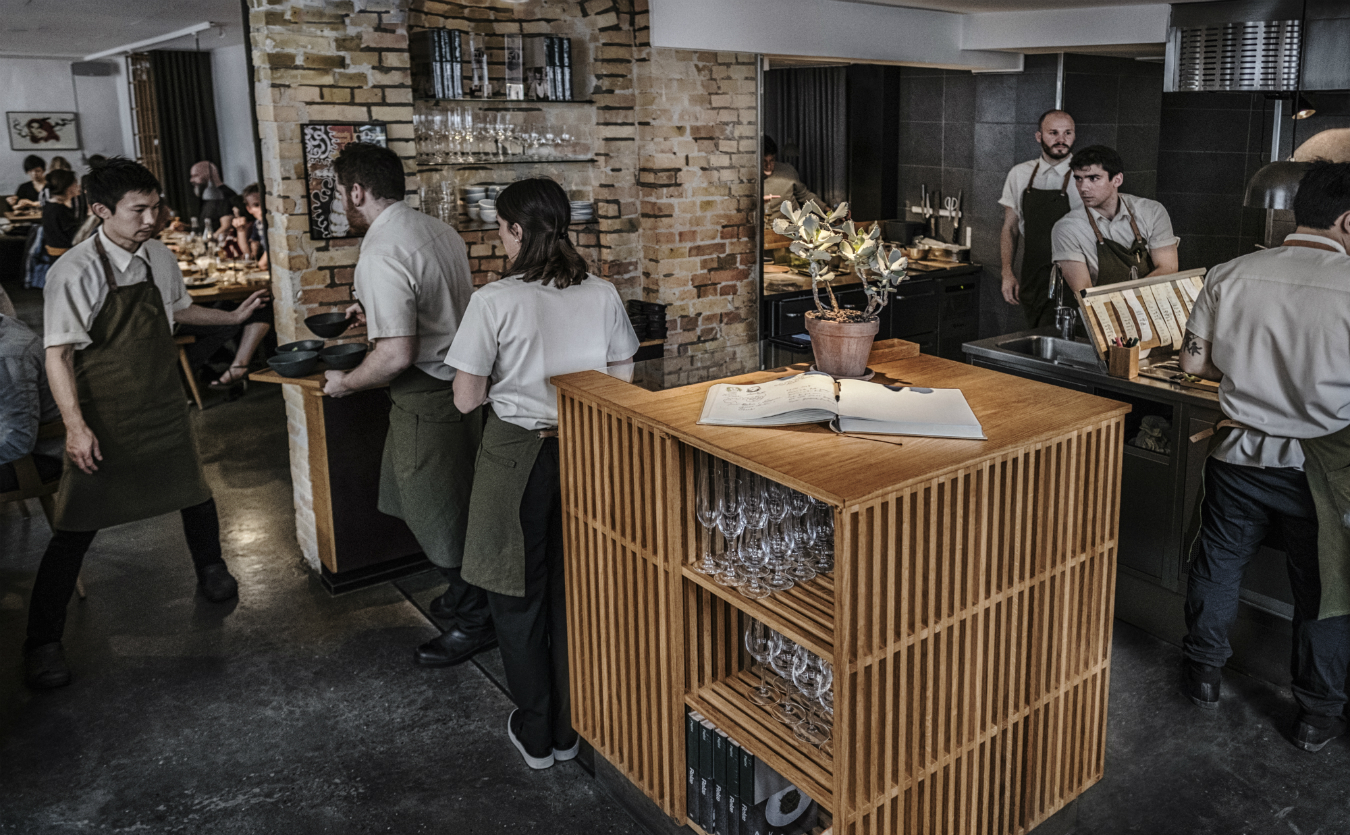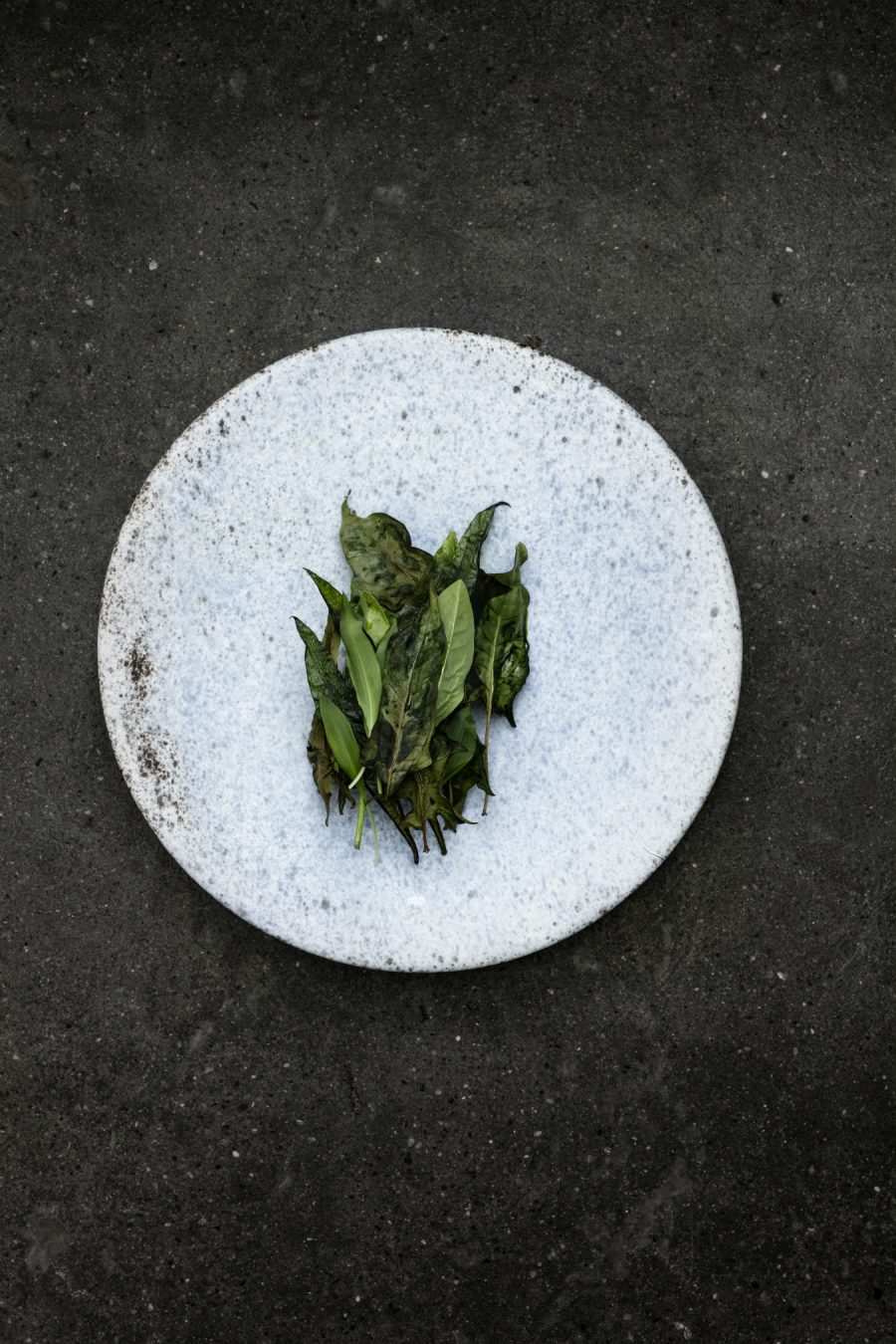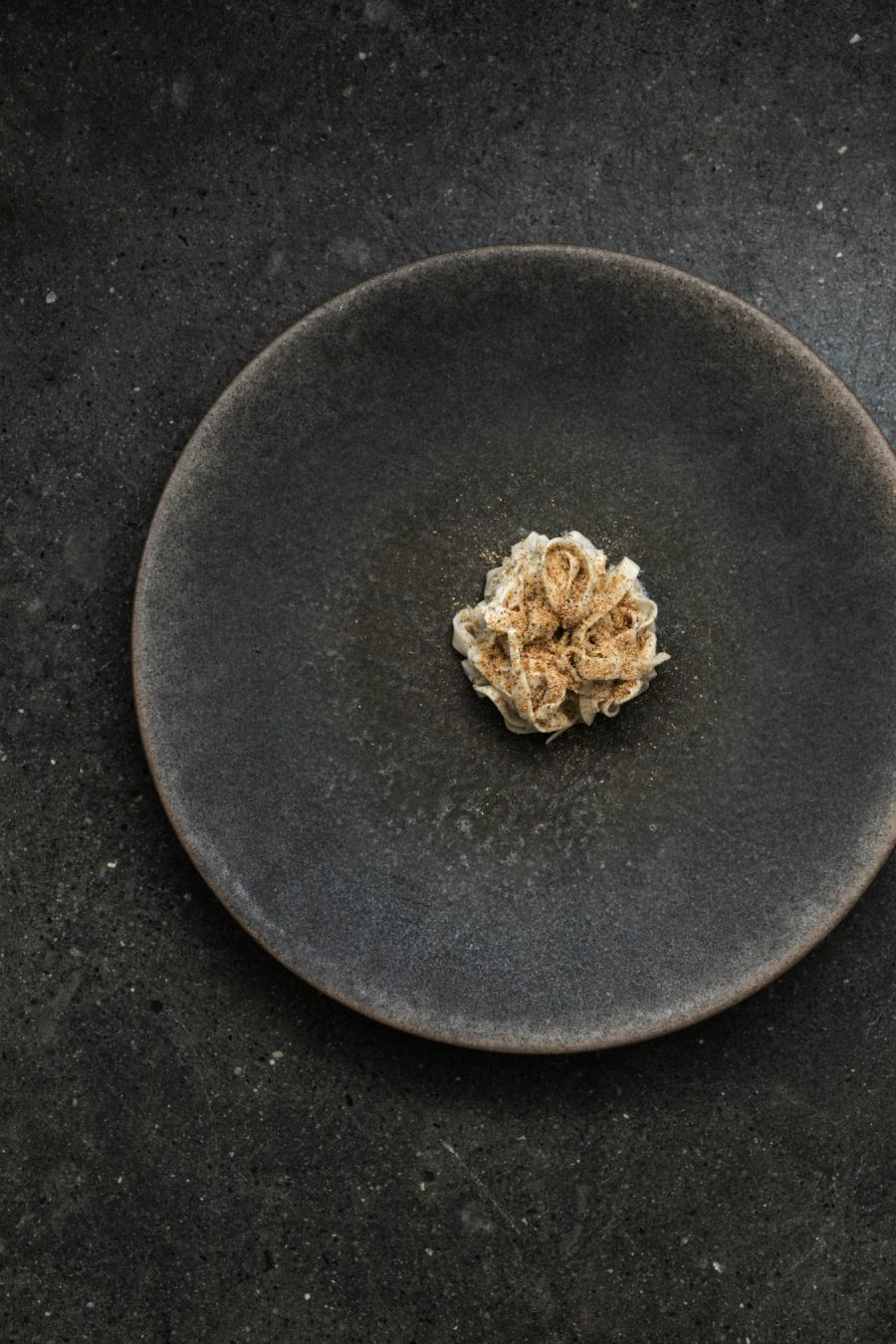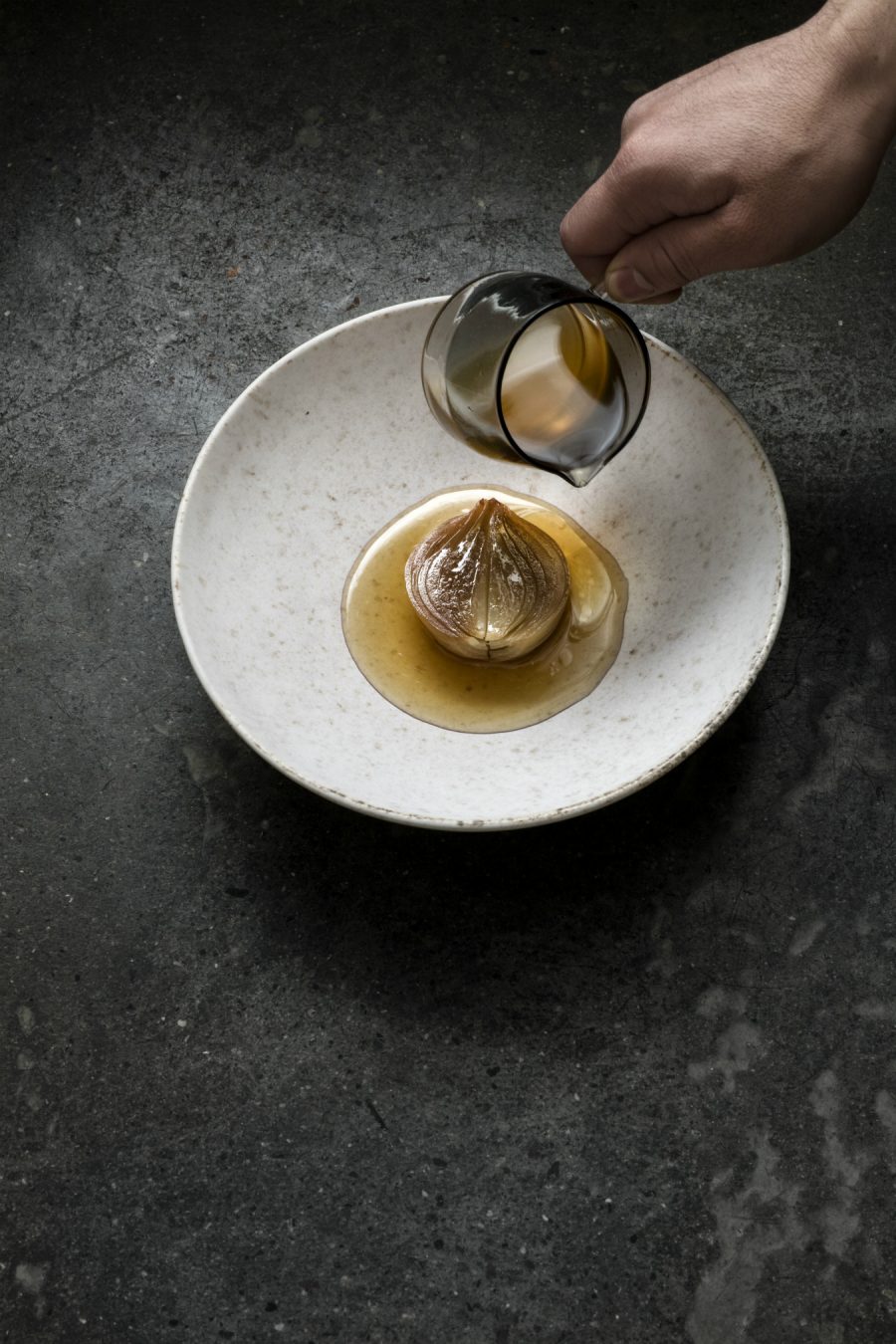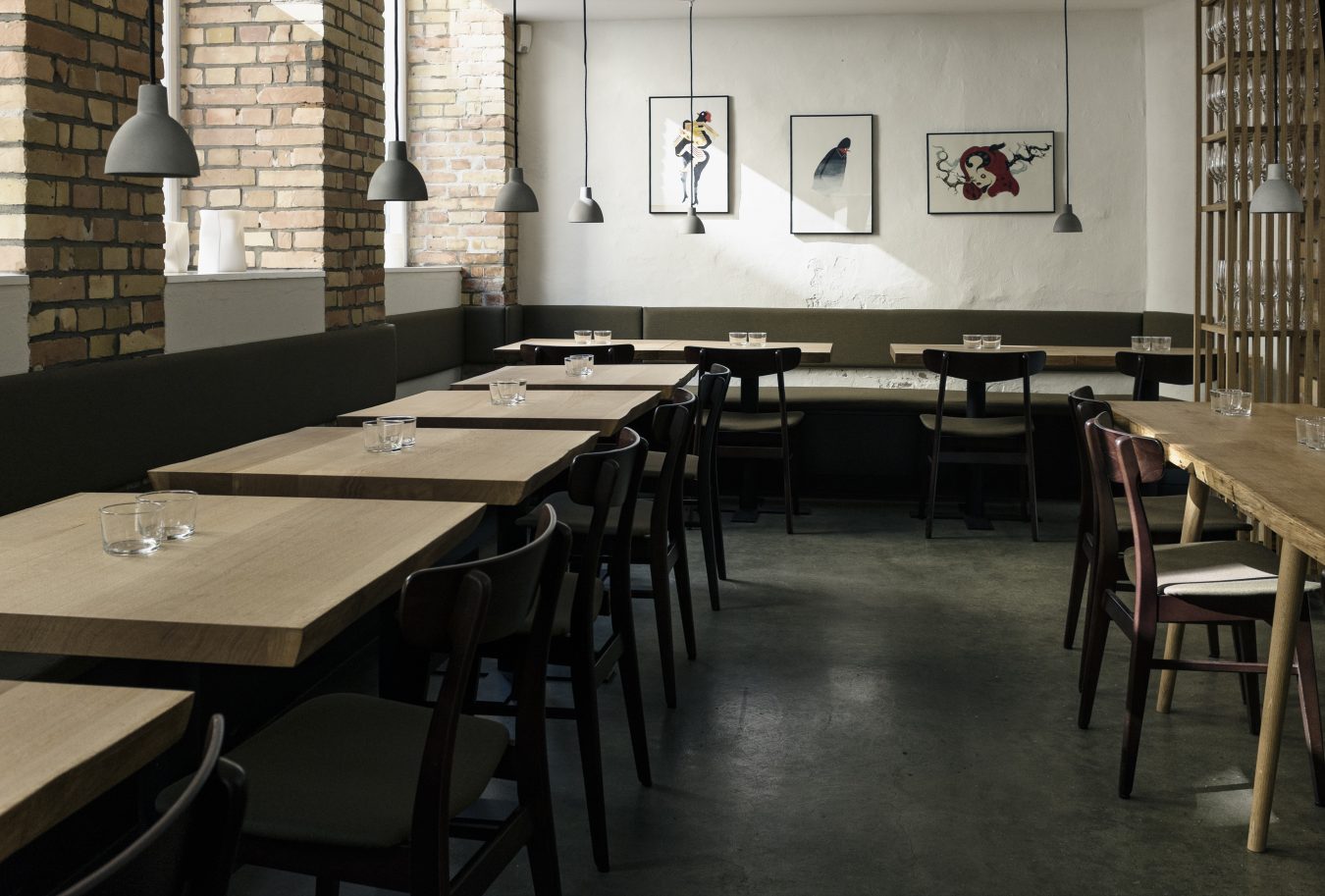Relae restaurant in Copenhagen made a splash around the world when it opened. Every single person on the team, headed by owner and founding chef Christian Puglisi, came from uber-famous Noma, where René Redzepi has run hard with his Michelin stars and all manner of world’s best restaurant accolades. Puglisi decided it was time for a new kind of gastronomy, in which the food would be fantastic, but the environment more modest, the accoutrements of three-star dining put aside to focus on warm service and only the best of organic foods. Jonathan Tam was named executive chef at Relae just over a year ago, as Puglisi decided to spend more time overseeing his now-five restaurants, and a fully operational farm, which will ultimately supply the establishments with virtually everything they need.
Tam was in Vancouver to do a collaborative dinner with his old friend and former colleague at Noma, David Gunawan, at Farmer’s Apprentice. Just before a staff meeting, Tam sat down for a few minutes to talk about his rise in the culinary world—though he would never likely characterize it that way—and what the experience at Relae has been like. “The idea from the start was to cut everything to the bone, and focus strictly on the food and service,” he says. “We all loved Noma, an amazing place. But what Christian really wanted was to make a restaurant experience that was not event dining, and not a massive expense—and still make the food memorable.”
There are many innovations at Relae, all for the purposes of keeping the focus on food. Cutlery and napkins are placed in small drawers under the tables, for each individual diner to access on his own. “It was all about admitting there were limits to our resources,” says Tam. “If we had two servers on, instead of eight—which we could not afford—then we had to be creative, and build systems that would work for the resources we had.” Relae was among the very first offspring of the famous Noma, and as such drew a lot of international attention, as well as local patrons. “The message to guests is: ‘We take this very seriously. We are open, honest, and honour the ingredients we find.’” For his part, Gunawan says, “What I love about Relae is they are unapologetic about what they do. They have an identity, and they stick with it. And there is a great spontaneity about the cooking.”
That freedom partially comes from the fact that, as Tam puts it, “we send three chefs out to the farm, an hour outside the city centre, to harvest things from seven until about two. They come back, and our challenge then is to create a menu, to find ways to use all of those freshly harvested things.” So, the spontaneity is basically built right into the system.
Tam’s elevation to executive chef was “a natural, smooth transition,” he says. “Christian is an amazing mentor, and this is part of that. He’s entrusted me with the kitchen, but I’ve been involved in creating menus from day one. His spirit of collaboration has been a driving force for us.” Teamwork was on full display at Farmer’s Apprentice, where, post-service, Tam says, “we really didn’t complete the final touches on the menu until about 4:30.” Rather than have each chef “do their own thing and then alternate,” Tam and Gunawan worked together on each dish until they were happy with the result. Crab, peas, and shiso; zucchini (green and yellow) and seaweed broth; new potato with brown cheese and hazelnuts; lamb with greens, padron peppers, and string beans—it all came together beautifully.
The journey from Tam’s native Edmonton was supposed to take him to several great kitchens in Europe, but he loved Noma, and became chef de partie, staying much longer than planned. His move with Puglisi to Relae was a natural step, and as executive chef, “my name is now connected to the restaurant, so people know who to come to if they are not happy.” He smiles at this touch of self-deprecation, as well he might, since the resounding success of Relae, including its truly inspirational cookbook, indicates the unhappy ones are rare as a free-range hen’s teeth.

